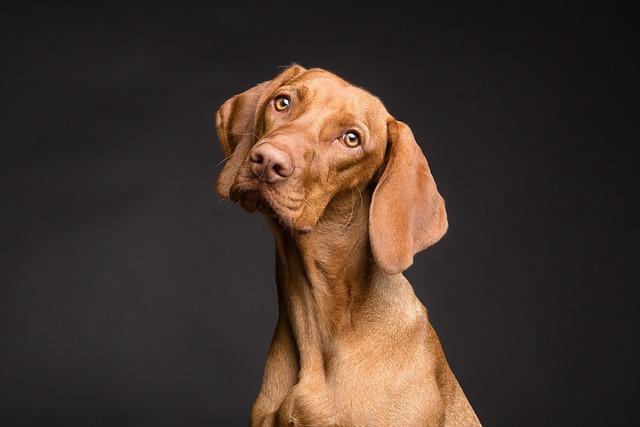When our beloved canine companions embark on their daily adventures, their curious nature often leads them to explore the world with their mouths. This endearing trait, however, can sometimes result in the accidental swallowing of foreign objects, leaving pet owners feeling anxious and uncertain about what to do next. If you find yourself in this situation, it’s important to remain calm and informed. In this guide, we’ll walk you through the necessary steps to take when your dog swallows something they shouldn’t have, ensuring their safety and your peace of mind. With a blend of practical advice and compassionate understanding, we aim to equip you with the knowledge to handle this common pet predicament with confidence and care.
Recognizing the Signs: How to Tell if Your Dog Has Swallowed Something Unusual
When it comes to our furry friends, curiosity often leads them to explore the world with their mouths. If your dog has swallowed something unusual, recognizing the signs early can be crucial. Watch for sudden changes in their behavior or physical condition. Some common indicators include:
- Vomiting or retching without producing anything.
- Lack of appetite or refusal to eat.
- Lethargy or noticeable decrease in energy levels.
- Signs of abdominal pain, such as whining or guarding their belly.
- Changes in bowel movements, including diarrhea or constipation.
- Coughing or gagging, especially if the object is lodged in the throat.
Being attuned to these signs can help you act quickly and seek veterinary attention if necessary. Early intervention can prevent complications and ensure your dog stays healthy and happy.
Immediate Actions to Take: Ensuring Your Dogs Safety Before Visiting the Vet
When you suspect that your dog has swallowed a foreign object, it’s essential to stay calm and act quickly to ensure their safety. Begin by removing any remaining hazards from their reach to prevent further ingestion. Check your dog’s mouth carefully to see if the object is still there and can be safely removed. Avoid using your fingers to retrieve it if it’s lodged deeply, as this may push it further down their throat.
Observe your dog for any immediate signs of distress, such as choking, gagging, or difficulty breathing. If these symptoms are present, seek emergency veterinary care right away. Keep your dog calm and comfortable by placing them in a quiet, familiar environment. Avoid giving food or water until you’ve consulted with a veterinarian, as this could complicate the situation. Additionally, prepare a brief history of what your dog might have ingested, including the time and any symptoms observed, to provide to the vet.
- Remove potential hazards from the area.
- Check for visible foreign objects in the mouth.
- Observe for signs of distress like choking or gagging.
- Keep your pet calm and comfortable.
- Prepare information for the vet.
When to Seek Professional Help: Understanding the Importance of Timely Intervention
In the whirlwind of daily life, it’s easy to overlook the subtle signals our furry friends might send when they’re in distress. However, if your dog swallows a foreign object, recognizing the moment to seek professional assistance can make all the difference. Timely intervention is crucial to prevent complications that could endanger your pet’s health. Here are some indicators that professional help is needed:
- Persistent Vomiting: If your dog is unable to keep food or water down, it may be a sign of an obstruction.
- Lethargy: A sudden drop in energy or unusual fatigue could indicate discomfort or pain.
- Abdominal Pain or Swelling: Noticeable pain when touching their abdomen or visible swelling can be serious.
- Changes in Appetite: A refusal to eat or drink for more than a day warrants a vet visit.
- Difficulty Breathing: This is an emergency and requires immediate veterinary attention.
Remember, it’s always better to err on the side of caution. Consulting a veterinarian not only helps in providing immediate relief to your pet but also prevents potential complications that could arise from untreated conditions.
Preventing Future Incidents: Tips for Keeping Your Dog Safe from Foreign Objects
- Supervise Playtime: Always keep an eye on your dog during play, especially when they are chewing on toys. Look for durable toys designed for their size and chewing strength to minimize the risk of pieces breaking off and being swallowed.
- Regularly Inspect Toys: Make it a habit to check your dog’s toys for signs of wear and tear. Discard any damaged toys immediately to prevent them from becoming potential hazards.
- Maintain a Clean Environment: Keep your living space tidy by regularly vacuuming and picking up small objects that could be easily ingested. Pay special attention to areas where your dog spends most of their time.
- Train Basic Commands: Teach your dog commands like “leave it” and “drop it” to help them understand when to avoid or release objects that could be harmful. Consistent training can be an effective preventive measure.
- Choose Safe Chewables: Opt for high-quality chew toys that are specifically designed for dogs, avoiding items that can splinter or break into small pieces. Natural bones or dental chews can be a safer alternative.
Creating a safe environment for your furry friend is crucial in preventing future incidents. Remember, a proactive approach not only protects your dog but also ensures peace of mind for you. By taking these simple steps, you can help keep your beloved pet safe and healthy.

